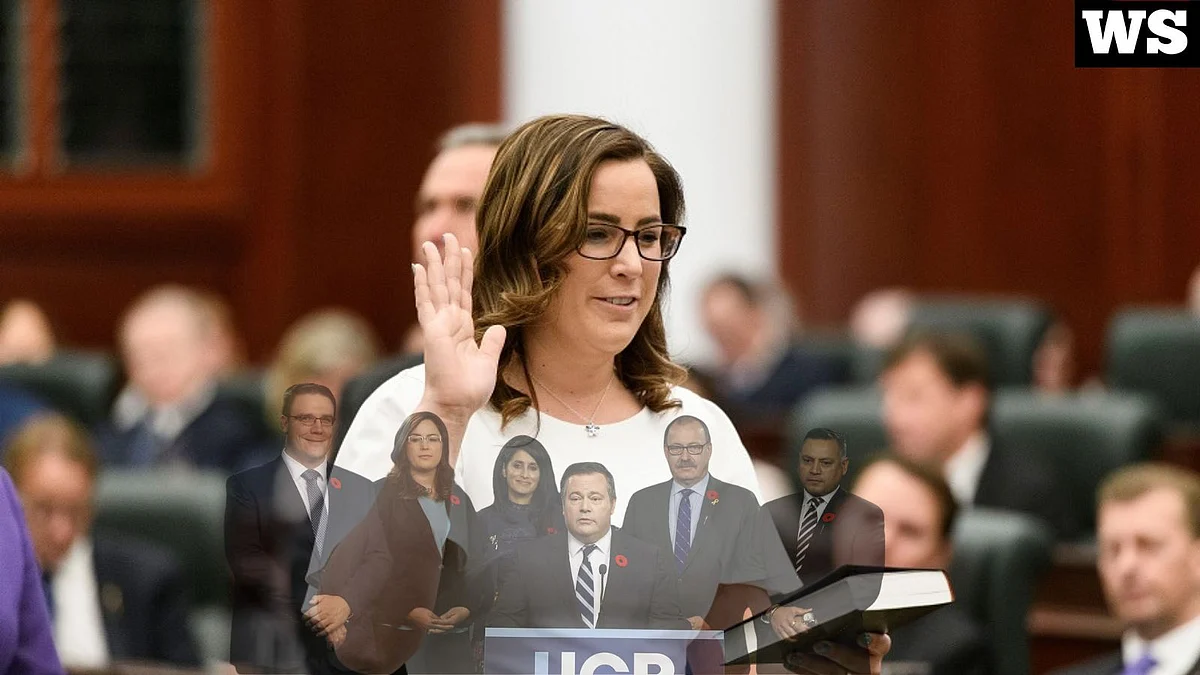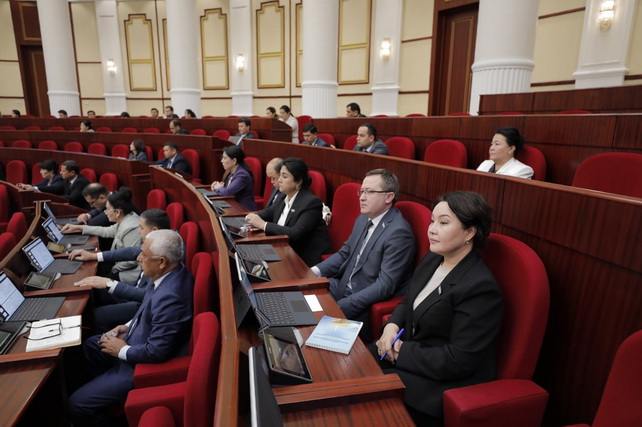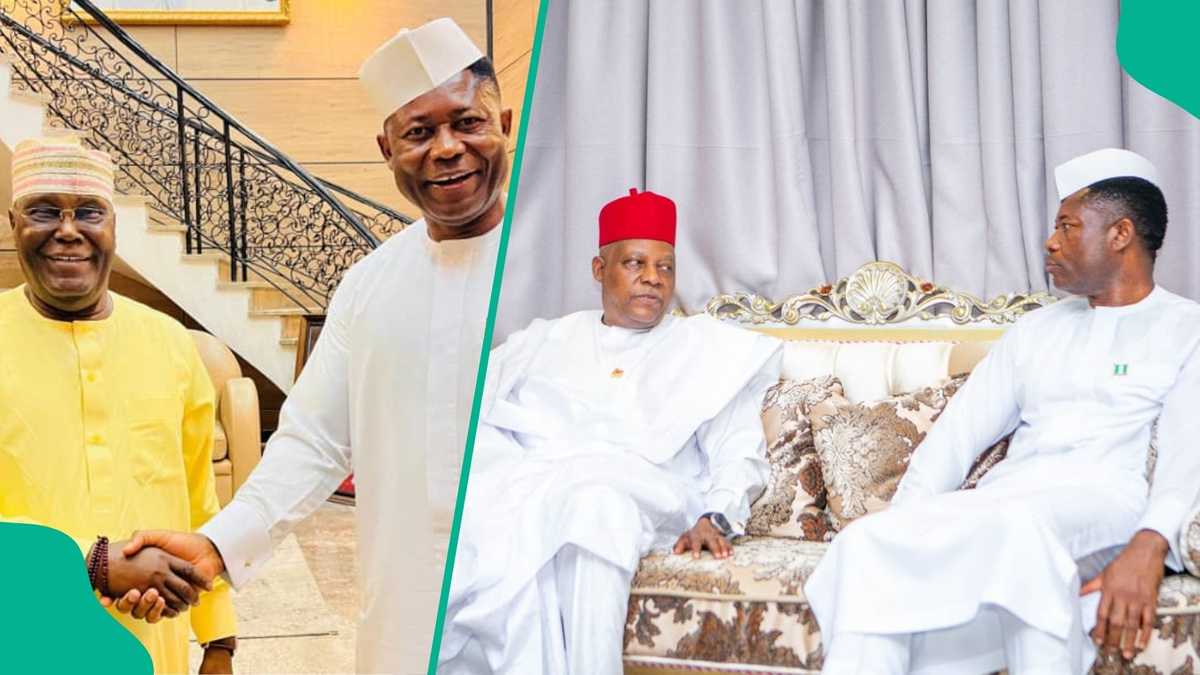Copyright The Boston Globe

Since then, Wang’s Chinese Arts Media Lab has showcased Chinese speakers, films, and immersive exhibits in Shanghai, Beijing, Hunan, and Cambridge. It also has sponsored visas for dozens of international scholars and students from China, supporting their entry into the United States and their stays on campus while charging them significantly more than many similar programs. Amid this rapid growth, Wang’s lab has tested the limits of US visa laws as well as Harvard’s policies. And its expansion comes at a time of increased government scrutiny of such international academic initiatives, which have been susceptible to visa fraud on other campuses. A Globe investigation found the Harvard lab in recent years used the exchange program to squeeze funds from eager foreign students, while also seeking to advance donors’ interests, often with little oversight from university leadership. A review of internal chat messages and interviews with five former lab workers suggests the lab serves as a side door into the United States for well-heeled Chinese students eager to obtain the imprimatur of one of the country’s most prestigious universities. Among the Globe’s findings: Wang’s wife, a volunteer with no Harvard affiliation, has directed highly sensitive — and occasionally mundane — projects at the lab. Records reviewed by the Globe show she helped identify candidates for the visa program and often sat in on interviews, while flagging which applicants could skip the interview process. A Chinese company run by the mother of the lab’s cofounder and two lab volunteers served as a contractor for the lab in China, coordinating events and more. In another case, the lab gave the daughter of an eventual donor a job. Some international scholars spent little time on campus, despite their visas requiring on-site attendance. One scholar was essentially part time, while others spent just a quarter of the yearlong stint in the United States. Another was based in Connecticut. Experts on university academic centers and international exchange programs said the Globe’s findings raise serious questions about the lab’s operations and Harvard’s oversight. “It doesn’t sound quite right,” said Stanley Colvin, a former State Department official who helped write national regulations on the exchange program. “It appears they’re selling their name so that that short-term scholar can say they’ve exhibited at Harvard, or they pursued studies at Harvard. They’re not doing anything except buying Harvard’s name.” One of the smaller, less-known of Harvard’s vast offerings of specialty programs, the Chinese art lab operates outside of the university’s core curriculum but affords about 15 visiting scholars each year access to the university at large and many of the trappings of graduate student life. “It was an unusual experience,” said one former lab employee, who declined to be named for fear of professional damage. “It was an art professor’s vanity project and he got some billionaires in China to fund it.” In the wake of Globe inquiries, Harvard has begun reviewing the lab’s practices, particularly the role of Wang’s wife, according to James Chisholm, a spokesperson for the university’s faculty of arts and sciences, which oversees the lab. Chisholm noted that faculty-run labs and academic centers must adhere to university policies, “including principles governing research, philanthropic gifts, and personnel.” The university did not directly address a number of other Globe questions about the lab and the university’s oversight. The challenge with academic programs such as this one — one of more than 250 institutes, centers, or labs at Harvard — is they are often run by powerful professors who are granted extensive autonomy, several former college and university administrators said. Because they generate outside funding that takes financial pressure off the university, oversight is often more hands-off. “There’s an incentive not to crack down on them, to let them do what they want to do,” said David Thomas, who recently retired as president of Morehouse College and previously served as an administrator at Harvard Business School. “The sacrifice is a pipeline to a bunch of million-dollar gifts; we’re not going to be likely to pull that plug.” The federal government is also examining the program. The Globe has learned the State Department’s Office of Private Sector Exchange Program recently opened an inquiry into the lab’s visitor visa program following a whistle-blower complaint from a former employee. That employee, Yiyi Liang, said in a Globe interview that she felt the lab “operates as a shadow system, leveraging Harvard’s global brand and the regulatory gaps between the US and China to construct what is essentially a private empire.” Liang shared emails with the Globe that show the State Department has asked Harvard for responses to her allegations. A department analyst was especially interested in learning more about the fees the lab charged to visiting scholars, emails show. A State Department spokesperson told the Globe the agency “cannot comment on the specifics of ongoing compliance reviews, nor does it comment on individual complaints.” In July, the department announced a broad investigation into Harvard’s compliance with the J-1 visa program, which allows foreign nationals to come to the United States for “cultural exchange” programs. It is unclear whether the CAMLab probe is part of the broader inquiry. Wang did not respond to the Globe’s requests for an interview. In emailed responses sent through the Harvard communications department, he dismissed Liang as a disgruntled employee with limited knowledge of the lab’s operations. He described CAMLab as a “faculty initiative” and called it his “passion project.” He noted it draws credentialed international academics to its programs and said his wife is a volunteer who briefly helped screen visiting scholars, but did not have decision-making authority. “The CAMLab complies with all applicable guidelines related to the J-1 visas,” Wang said. He added that the visiting scholars “are professionals with legitimate academic credentials” and they bring “new intellectual stimuli and fresh perspectives” to Harvard. The federal scrutiny of the lab comes at a precarious time for Harvard and for higher education as a whole. The White House has launched inquiries and attacked many universities, none more aggressively than Harvard, as being too beholden to “woke” ideologies and too accommodating to foreign students and interests. Nationwide, recent cases have ratcheted up national security concerns about visa programs, and congressional committees have raised questions about how universities manage them. Universities once enthusiastically courted wealthy Chinese donors and touted partnerships with Chinese counterparts, but they’re now “being more careful,” said Peter Mattis, president of the Jamestown Foundation, a defense and security think tank. Schools are increasingly scrutinizing and even shuttering programs, such as technology research partnerships and exchange initiatives backed by the Chinese government. In the first Trump administration, the government warned American universities the Chinese Communist Party could be exploiting academic partnerships to gain access to federally funded research and technology. That drumbeat has gotten louder in Trump’s second term. This summer, Secretary of State Marco Rubio said that if universities want the “privilege” of sponsoring visitors, they must comply with all regulations. “The American people have the right to expect their universities to uphold national security, comply with the law, and provide safe environments for all students,” Rubio said in a statement. Harvard’s longstanding relationship with China earned it a reputation as a “party school” — as in the Chinese Communist Party — for training government leaders and educating the children of Chinese elites. But the university has also produced research critical of China’s government, experts said. “It’s always been schizophrenic,” said Isaac Stone Fish, a founder of Strategy Risks, a business intelligence company. During China’s building boom, Harvard benefited from multimillion-dollar donations from newly minted real estate moguls, who typically had close ties to the party leadership. Between 2004 and 2025, Harvard received nearly $584 million in donations and contracts from China, more than from any other foreign source, according to federal education data. “There’s subtle pressure to do what the funder wants,” Fish said of the Chinese donations across US higher education. “It’s more intense with Chinese donors.” Earlier this year, Fish’s company published a report on Harvard’s China ties for the conservative Manhattan Institute that has been used as a road map for congressional Republican legislators looking into Harvard. Academic centers and labs are ubiquitous at the nation’s largest schools. Broadly, they allow universities to be nimble and focus on important research areas, said Jeffrey Flier, a former Harvard Medical School dean. But at a time when public trust in higher education has eroded, critics say there should be more transparency around them. In Harvard’s case, Flier said the university needs to “more seriously conduct critical evaluations of these entities,” Flier said. Though the labs are expected to follow university policies, Harvard exercises little oversight. For example, Harvard doesn’t set guidelines for administrative fees paid by participants. Nor does the school examine the lab’s advisory boards. Tucked in the basement of Harvard’s art and architecture department, CAMLab has five paid staff members and hosts a rotating cast of 15 visiting scholars every year, as well as 15 interns. They aren’t considered students, per se, but are granted access to many of the university’s resources. Its founder, Wang, is a Chinese-born academic who earned his doctorate in art history at Harvard, where he has taught since 1997. An expert in Chinese medieval art, Wang parlayed his fascination with murals and Buddha statuary in caves near the Gobi Desert into a Harvard experience. “Some of these paintings offer this imaginative process where one enters into a certain kind of meditation as depicted on the wall. Imagining giving up your body to feed the hungry tigress, feeling your body in some kind of levitation, finding yourself in a bodiless state,” he told The Wave, Harvard’s Asian art and literary magazine in 2021. “I felt like the only way I could share this was to make it immersive, using media and technology to help me communicate this visionary experience.” A recent immersive exhibit in Hunan reproduced ancient Chinese tomb art in a digital theater, using 3-D projection, high definition artifact scanning tools, and videos to teach audiences about the philosophy behind the work. His vision was matched by Wang’s ability to coax millions from foundations and private donors, said several former CAMLab employees and Harvard colleagues. Those donations, former employees said, sometimes appeared to come with strings attached. Former employees recalled that a future donor’s daughter was given a key role at the CAMLab and that people who knew Wang or his wife were brought in as scholars or interns. Wang acknowledged hiring a donor’s daughter in 2018 but said it had nothing to do with fund-raising. He said she was a qualified candidate and her family weren’t donors at the time. “Her hiring strictly followed the university’s hiring procedures and vetting processes, unrelated to any gifting at the time of her hiring,” Wang said in a statement. Wang said CAMLab’s contract with Kaimu Culture Technology Co. Ltd, an art and design production firm, followed normal vendor procedures. The company is run by the mother of CAMLab’s current cofounder and a volunteer listed as a lab project manager. Wang said neither he nor the lab received any financial benefit from the relationship, and the lab has no current contracts with the company. The role Wang’s wife, Jie Lu, played at the lab also raised eyebrows. Her LinkedIn profile describes her as an executive at Morgan Stanley and CAMLab’s website lists her as the chair of its three-person volunteer advisory board. The two other members include the founder of a private equity firm who specializes in financial planning for wealthy families, and a Boston-based executive for a Chinese oil company who previously hosted a children’s program for China’s national television broadcaster. The extent of Lu’s involvement in CAMLab was unusual at Harvard, according to Liang, the former employee who complained to the State Department. The Globe reviewed dozens of internal messages that show Lu pushed to give leadership credit on the lab’s website to a well-connected intern, a practice that raised concerns among other employees. On at least four occasions in 2024, Lu suggested candidates for the visiting scholar program, even identifying which ones could skip the interview process. Lu led interviews, and after one vetting session told staff “we decided to accept only two students,” including one who could only be on campus for three months. In October 2023, as the lab was screening candidates, Liang flagged that one wasn’t sure she would be able to pay the administrative fee of $10,000 a year, since increased by $6,000). Lu said in chat messages: “No need to ask further — if she can’t pay, we can’t accept her. The $10,000 is mandatory for all visiting scholars. How they come up with the money is their issue — not ours.” In a statement, Wang defended his wife. “Whatever input she has is strictly advisory in nature,” Wang said. “She volunteers her after-work hours for CAMLab out of her care and love for the CAMLab projects.” Though the exact nature of the State Department inquiry is unclear, the agency has taken a particular interest in the administrative fees charged to visiting scholars, according to Liang’s e-mail correspondence. Liang identified this oddity to the university’s international office and its Title IX office in meetings in spring 2025. While accompanied by a union representative, Liang highlighted the dominant role Lu had within the lab, as well as issues around visiting scholars and administrative fees. Everyone was struck by the lab’s fee structure, said Adam Sychla, a representative from the Harvard Academic Workers Union. “It seems odd to pay to have a position,” Sychla told the Globe. The lab currently charges scholars $16,000 annually. Few — if any — other Harvard centers charge as much. The Harvard-Yenching Institute, which focuses on the study of humanities and social sciences in Asia, charges no fee. Harvard’s Fairbank Center for Chinese Studies charges a $1,000 flat fee. The Weatherhead Center for International Affairs charges $5,000 a semester. As the Globe was reporting this story, CAMLab’s website removed any reference to the size of the administrative fee. Liang highlighted other issues to State Department investigators as well. Internal documents and correspondence suggest the lab downplayed visa requirements for English proficiency and on-campus guidelines. For example, when one student listed his address as Connecticut, an official from the university’s international office flagged it as a problem to CAMLab staff and tried to confirm it was only temporary, text messages show. There is no indication the scholar ever moved or that the university checked further. In a written statement, Wang said the lab tells visiting scholars that they must spend time at Harvard, but there’s no requirement they live near campus. Liang said she was motivated to complain to the State Department and talk to the Globe because Harvard failed to take her concerns seriously. She graduated with a master’s from Harvard’s School of Design in 2019, then went to Germany on a fellowship, and returned to campus in 2023 as a fellow at the CAMLab. “When I was a student at Harvard, I was deeply inspired by dedicated and respectful scholars; it shaped my dream of an academic career,” Liang said in an interview. “At CAMLab, however, my experience diverged: processes felt increasingly transactional, and uses of supervisory power I perceived as inappropriate — this is what I lived through.” Liang said she took medical leave early this year from CAMLab before returning part time. Her appointment was not renewed in late spring and she’s no longer affiliated with Harvard. Harvard sponsored more than 2,200 new J-1 visa holders in 2024. Nationwide, 76,460 professors, specialists, research scholars, short-term scholars, and college students came to the United States on this visa that year, according to federal data. Federal oversight of J-1 visas has been limited, and enforcement actions rare. “In the past, we haven’t seen a lot of enforcement,” said Dan Berger, an academic and medical immigration lawyer with Green & Spiegel. “We haven’t seen a lot of situations where the State Department has said, ‘No, you shouldn’t have done this.’ ” The program has been susceptible to abuse. In 2018, the Wilson Center, a nonpartisan, foreign policy group, published a report on Chinese political interference and influence on higher education that said some faculty and students at Harvard were concerned visiting scholars from China were acting as de facto spies, monitoring the political views and work of ethnically Chinese students and professors. In 2022, a Chinese bureaucrat, Zhongsan Liu, was convicted of federal visa fraud stemming from his alleged attempts to persuade universities — including the University of Massachusetts Boston — to falsely sponsor Chinese officials as research scholars. This past week, three University of Michigan J-1 visa holders from China were charged in connection with smuggling roundworm samples related to the research they were conducting at a campus biology lab. The university terminated their visa sponsorship after the three refused to participate in an internal investigation, according to news reports. In recent years, many scholars tied to China’s military-focused universities have also come to the United States on J-1 visas, posing national security risks, said Representative John Moolenaar, a Republican from Michigan who heads the select committee on China. “More oversight must be done by our universities and the federal government to protect our country.” Moolenaar said in a statement to the Globe. It’s unclear whether the federal government’s recent scrutiny of the visa program has resonated within Harvard. The CAMLab welcomed a new set of visiting scholars and students this fall. On its Harvard website, the lab has distanced itself from its Chinese origins, billing itself officially now as the Cognitive Aesthetics Media Lab. On the Chinese social media site Xiaohongshu, or RedNote in English, not much has changed. Its official account remains Harvard University Chinese Art Media Lab.



